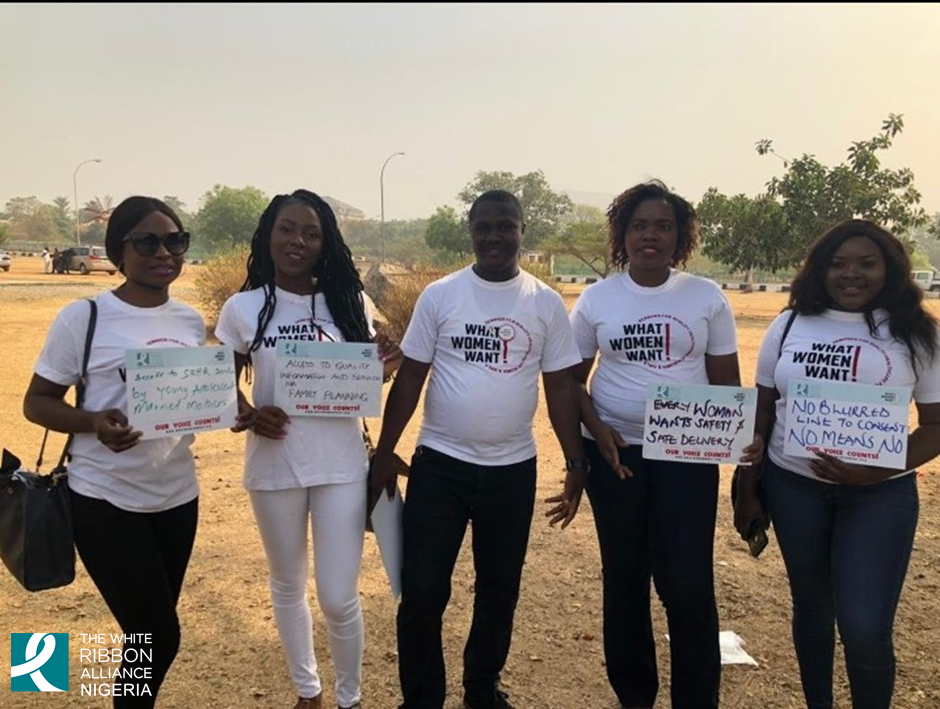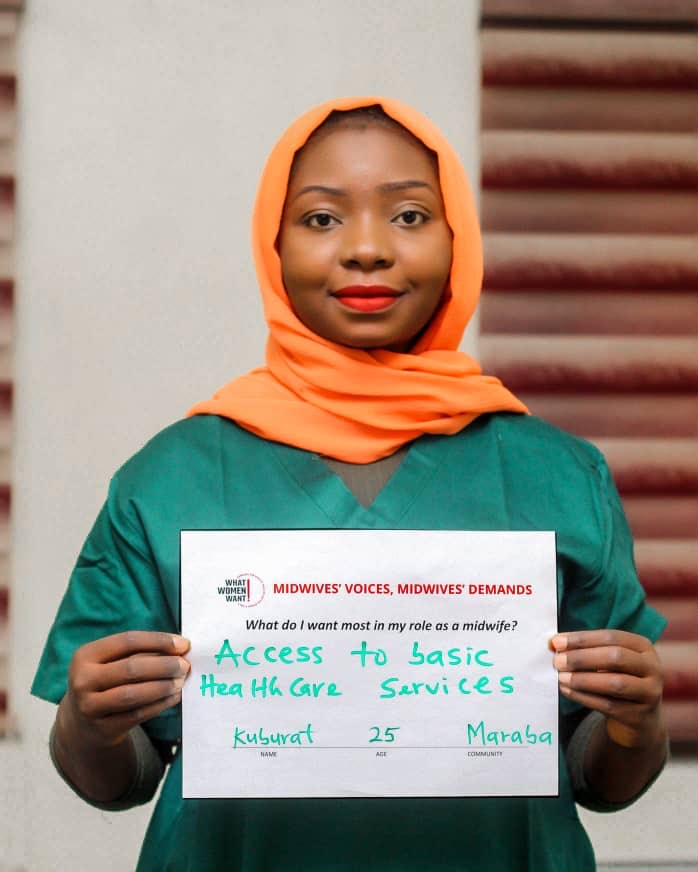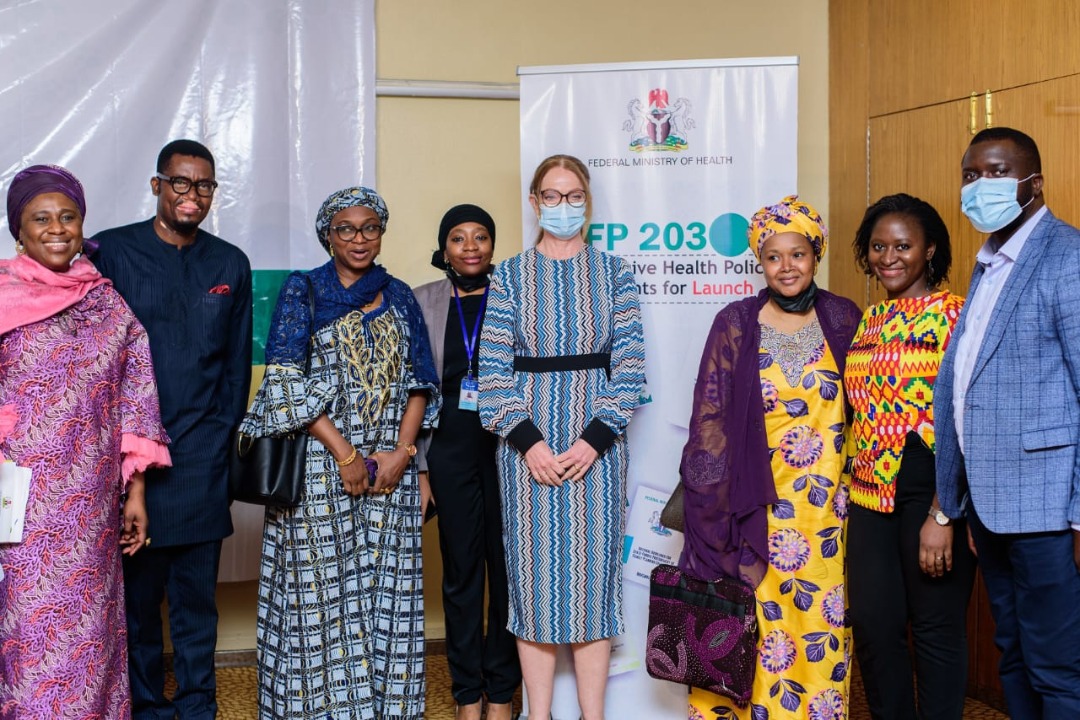
Our Campaigns
Read more about our campaigns below

1.2 million women and girls made demands globally and 78,066 made demands in Nigeria
WASH Campaign
Carried out in Niger State
We asked women and girls in Nigeria what they wanted most for their reproductive health needs, Water, sanitation and hygiene was the most demanded need. Our WASH campaign was carried out in Niger State.
Top 5 Demands
Water, sanitation and hygiene
Respectful and dignified care
Increased, qualified, closer and better-supported female providers
Closer, fully functioning health facilities
Medicines and supplies

Midewives Voices
Nigeria
To respond to women and girls’ demand made during the WWW, WRA Nigeria embarked on research to find out why women and girls asked for Increased, qualified, closer and better-supported female providers.
We carried out a rapid assessment in the State to find out the State of Midwives.
With this report, we worked with the Niger State Chapter of the National Association of Nigeria Nurses and Midwives to advocate for more midwives in the State, this resulted to employment of 100 midwives, 100 nurses and 100 community health extension workers through the Basic Health Care Provision Fund. Employment is presently ongoing.
Quality Care Network
WRA Nigeria is part of the Quality-of-Care network in Nigeria and provides specific support to Experience of Care and Respectful Maternity Care.
Quality Care Strategy
WRA Nigeria supported Niger State to domesticate the Quality-of-Care strategy and piloted Quality improvement framework in 24 Health Facilities including setting up Quality Improvement Teams.
Accountability
With funding from the Bill and Melinda Gates Foundation (the Gates Foundation) via the Global White Ribbon Alliance, in 2015 WRA Nigeria began a three-year campaign in three local government areas of Niger State—Chanchaga, Lapai, and Wushishi—to increase citizen-led accountability for maternal, newborn, and child health. WRA Nigeria received a three-year reinvestment from the Gates Foundation in 2018, which included expanding activities to an additional three local government areas: Agwara, Mariga, and Bosso. The campaign is multi-pronged, and specific activities have changed over time as WRA Nigeria has adapted to address challenges and updated strategic priorities. Broadly, the campaign seeks to build government support for improving maternal and primary health care quality, to enable citizens to monitor governmental follow-through on its responses (i.e., to move from response to responsiveness) and to undertake related advocacy, and to institutionalize accountability processes within governmental efforts to improve maternal and primary health care quality.
Gender Equality
WRA Nigeria advocates for women and girls’ rights to health and gender equality. Over the past couple of years, we have worked on various programmes that empower women and girls on their right to gender quality.
UNESCO-Spotlight SRGBV
WRA Nigeria led the development of guidelines to domesticate and pilot UNESCO-UN WOMEN Global Guidance for addressing School related Gender-Based Violence.
Empowerment
Over 500 girls in school and communities were empowered on school related gender-based violence, school rules on GBV and we created safe-guarding teams in school.
Self Care
WRA Nigeria is a part of the Nigeria National Self-Care Network established in October 2019 to coordinate self-care advocacy at the countrywide stage which will transform the healthcare system and place autonomy, power, and control in the hands of individuals. The Nigeria NSN leads a consultative procedure to outline a coordinated advocacy approach for self-care.
Thousands of girls and women in Niger State, Nigeria demanded that they get easy access to care and health services closer to their communities. Nothing embodies this request greater than self-care – specifically, equipping women and girls with the information and tools to manage their reproductive and maternal health in the comfort of their homes.

The WHO in 2019 released the Self-Care Guidelines for sexual, reproductive and maternal health, this Guideline was adapted by the Federal Ministry of Health. Women’s demands coincided with the Federal Ministry of Health’s renewed focus on self-care. Advocates brought women’s perspectives to key policy forums including stakeholder consultations on self-care and government meetings to develop a national guideline. In 2021, Nigeria became the first country worldwide to adopt and implement a national self-care guideline. As of 2022, nearly half the states in Nigeria have committed to implementing the guideline and expanding access to self-care – from building awareness of healthy behaviors to increasing availability of self-administered products for contraception, HIV testing, cervical cancer screening, and more.
